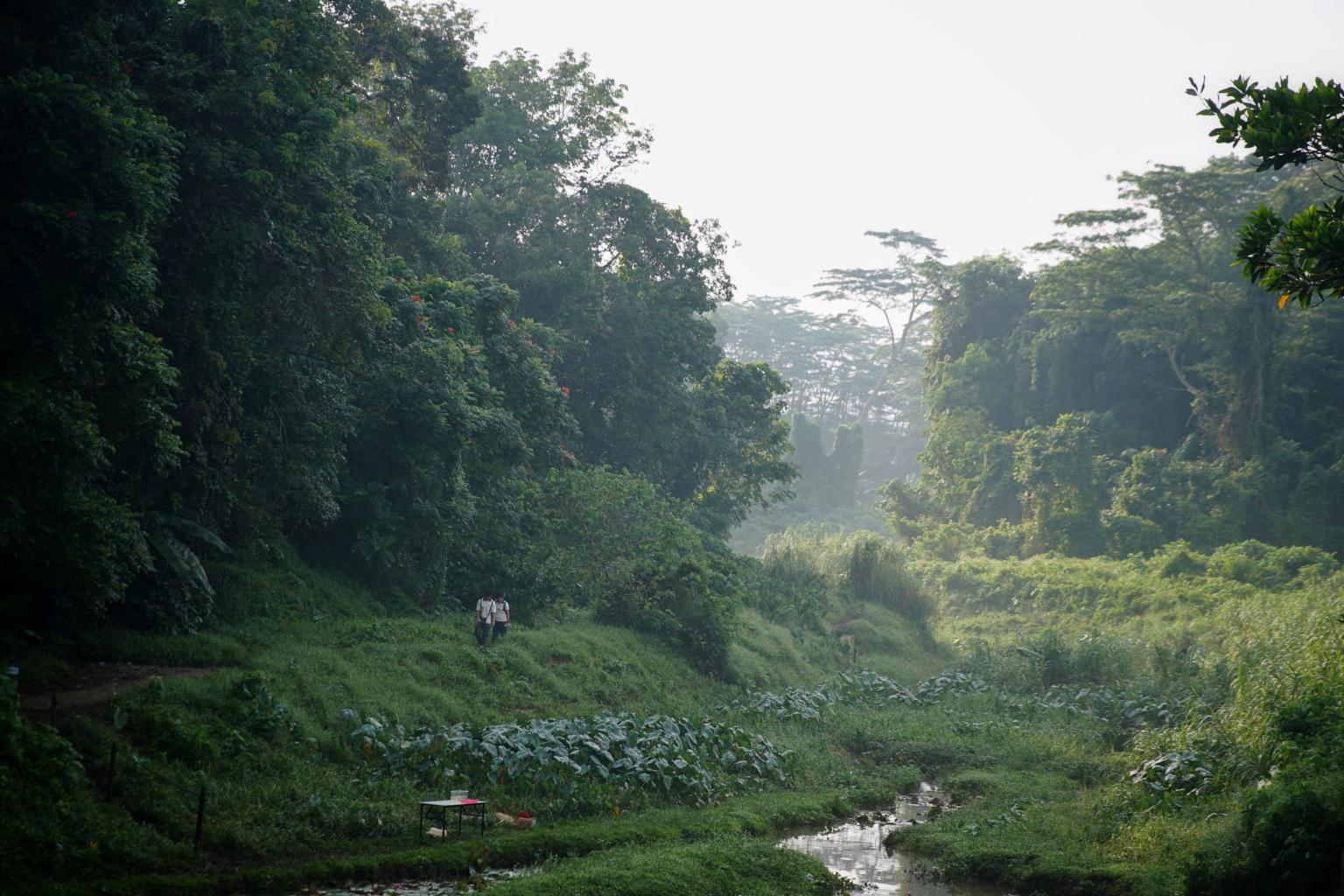NParks to centralise environmental assessments of nature-sensitive projects
Sign up now: Get ST's newsletters delivered to your inbox

The shift involves standardising methods for conducting wildlife surveys.
ST PHOTO: JASON QUAH
SINGAPORE - From next year, environmental consultants who assess the impact of development works on an area's plant and animal life will be managed by the National Parks Board (NParks) instead of the developers themselves.
This move to centralise environmental impact assessments (EIAs) will enable NParks to work more closely with the consultants to raise the quality and rigour of their work and ensure urban developments are carried out in a sustainable manner.
A key aim is to prevent miscommunication or mishaps, such as clearing of woodland that could lead to environmental damage and loss of wildlife.
"In the past, the developers will manage the consultants and they check back with us... but now we are right in the centre of the action and this will certainly reduce miscommunication or sometimes (parties) forgetting to update us on certain key EIA results," said Mr Ryan Lee, group director of NParks' National Biodiversity Centre.
The shift involves standardising methods for conducting wildlife surveys, said NParks on Saturday (Aug 27). Instead of developers calling their own EIA tenders, NParks will have a centralised tender that consultants can respond to, and it will also manage them directly on behalf of the developers.
This will also allow NParks to gather information from various environmental impact studies to create a database that will provide resources for long-term monitoring and research of the areas studied, and how the areas connect to one another.
This move will first be piloted early next year for new Housing Board (HDB) and JTC projects that require EIAs, before deciding to expand this to all government projects, said Minister for National Development Desmond Lee in a Facebook post on Saturday.
"Our assessment is that centralising the management of EIA consultancy services under NParks has many benefits, and will raise standards across the industry."
Mr Ryan Lee said NParks will prepare the tender specifications in consultation with the developers and other agencies. The consultants will report to NParks and the developers on their progress.
This change in the management of EIA services is part of a three-pronged review on the strengthening of processes - which started early last year.
The first part involved the creation of tools and maps to have a comprehensive picture of Singapore's green spaces and habitats, and how they connect to one another.
The project - which was completed in June last year - also identified routes that wildlife could take to get from one green patch to another.
The second part refers to the EIA consultancy services being managed under NParks.
In the third area under review, the authorities will explore using technology in the built environment sector and how it can be applied to project management.
The review followed the erroneous clearing of 7.3ha of woodland in Kranji in late 2020 before approval was granted. Since the land was not near sensitive nature areas, an EIA was not deemed necessary.
However, a new drain proposed for the Kranji development meant some environmental studies - including a biodiversity one - were required before land clearance.
Two employees from site developer JTC and an employee from consultancy firm CPG Consultants were charged in April this year.
They were accused of being part of a conspiracy to cause a construction company to cut the trees without approval from the Commissioner of Parks and Recreation.
Enhancements to the EIA framework have been ongoing for a few years now. In late 2020, sweeping changes were made to ensure that development works are more sensitive to wildlife and areas of conservation value.
Those changes included new guidelines for conducting biodiversity impact assessments and building up local expertise on ecological matters, added Mr Lee in his Facebook post.
Environment consultants and members of the nature community who spoke to The Straits Times said centralising the environmental assessments within NParks is a step in the right direction.
Ms Holly Siow, senior consultant at Tembusu Asia Consulting, said: “With NParks being the client, this also facilitates discussions for more favourable project outcomes, particularly for biodiversity conservation.”
National University of Singapore marine biologist Toh Tai Chong said harmonising the requirements of EIA reports makes it easier for government agencies, community groups and companies to interpret the findings.
Mr Muhammad Nasry who leads the Singapore Youth Voices for Biodiversity added that NParks could conduct spot checks and audit the development sites. This would deter contractors from cutting corners when carrying out mitigation steps to minimise ecological impacts.
Agreeing, Ms Siow noted that one drawback with the changes is that it might be difficult to communicate the EIA findings to contractors because they will be managed by the developers. The consultants will not have a direct link to the contractors since they will be managed by NParks.
“It is vital that the (mitigation) and monitoring plans are properly supervised to ensure that they (the plans) incorporate the recommendations from the EIA during construction and operational phases of projects,” she added.


